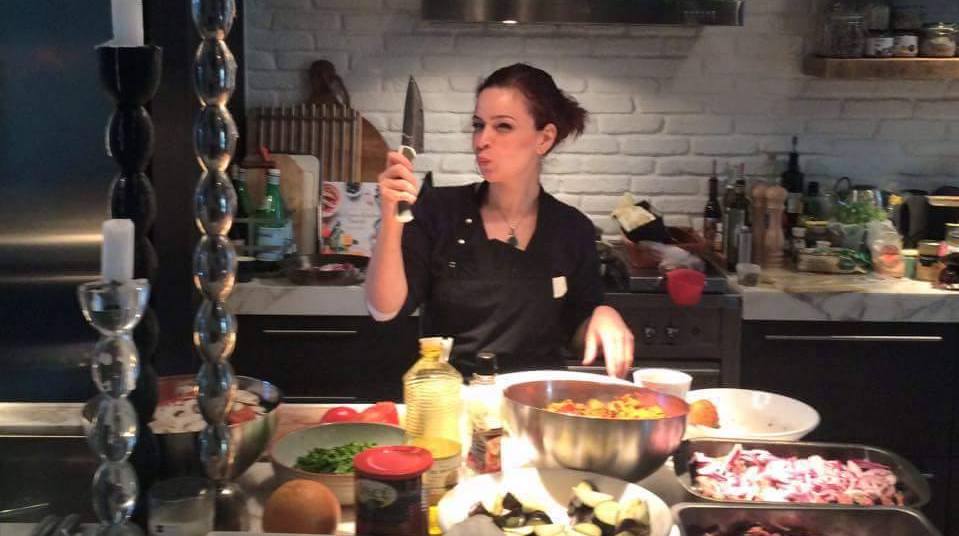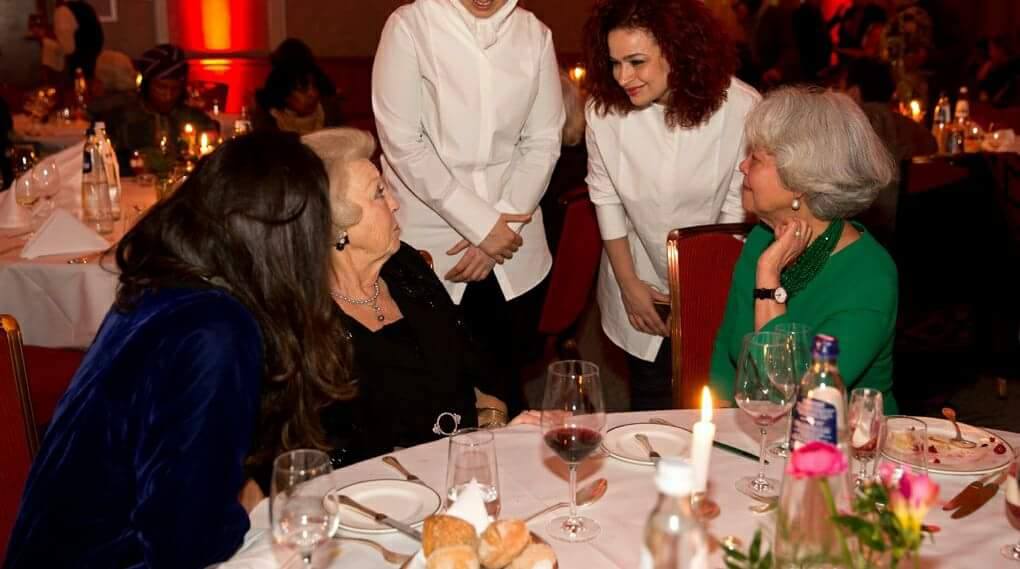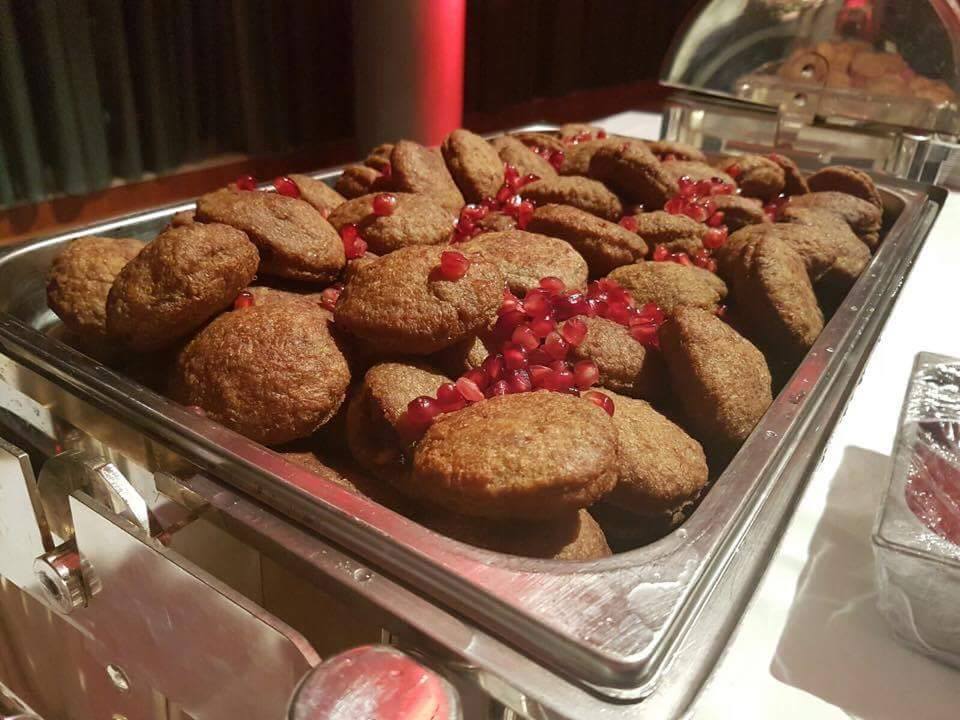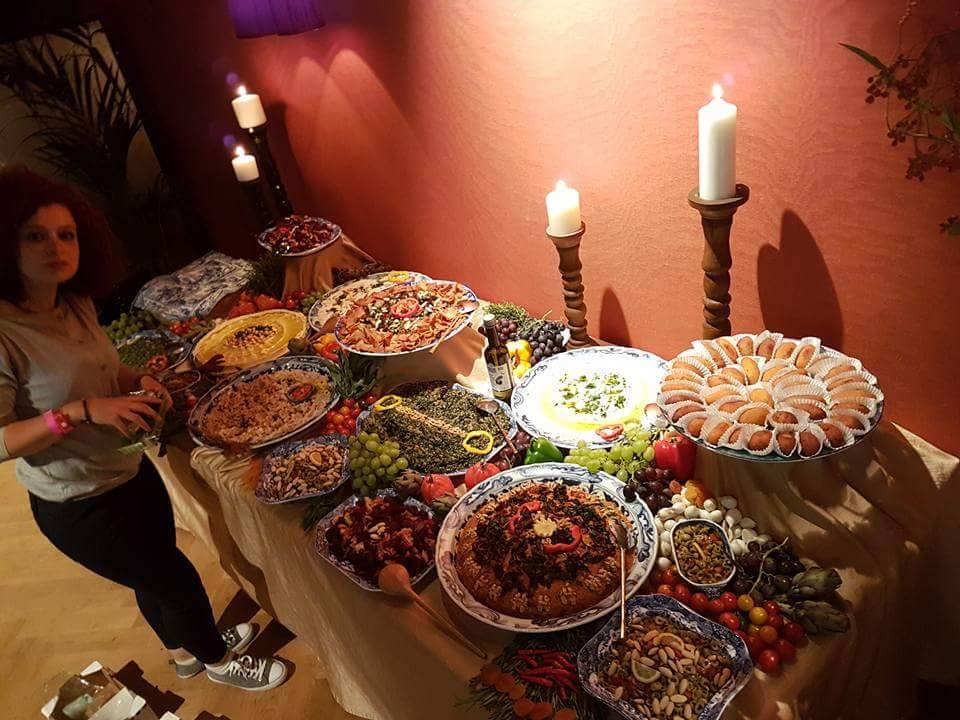
Zina’s Kitchen is the Netherlands’ first business run by a female refugee
For the Dutch Princess Beatrix, it could be any other charity dinner. The softly lit room, the white linen tablecloths with starched napkins. But when the food arrives, something's different. She finds a weirdly shaped minced meat ball, crunchy on the outside, juicy on the inside, and full of unfamiliar flavors.
What she just ate was the traditional Syrian dish “kibbeh”. It was cooked for her by the chef Zina Abboud, the first female Syrian refugee to open a business in the Netherlands – Zina's Kitchen.
Zina's story

Zina was born in Aleppo. She worked as a sales manager for five years after university, but cooking had always been her passion. She started when she was ten years old, she says, surprising her mother with a bean dish and a kitchen in complete chaos. But, as the Syrian civil war escalated, the smell of cumin and fresh bread in her kitchen was overtaken by the fumes and dirt of war.
As the situation in Aleppo got worse, Zina moved to Istanbul, and later joined her ex-husband and children in the Netherlands. When she arrived, she had lost everything; her house, her car, her country. But, she says, she wanted to work to contribute to the society that supported her.
The reality for female refugees

In the Netherlands, only one in 10 refugees finds employment after getting residency. On average across the EU, it takes between five and six years until half of refugees are integrated into the workplace.
Low-skilled, older and especially female refugees find it even harder than most. This could be because of cultural differences in their own countries – women in Syria, for example, often stay at home rather than work. When they come to Europe they lack education and professional skills and are more likely to stay unemployed.
For an educated young woman like Zina, the challenges are about more than just cultural differences.
“I know many women here who want to work. Sometimes it’s difficult. Look at my sister for instance. She has to take her children to school at 8 am and pick them up at 2 pm - there are no jobs where you can work those hours.”
Starting out

In December 2015, Zina was living in a camp in Amsterdam, dependent on help from the state. She'd lost her home, had suffered a traumatic journey, and became depressed.
On New Year’s Eve a Dutch journalist invited Zina and other Syrians to her home. Knowing they missed Syrian food, she bought a load of Arabic ingredients for the evening as a surprise – and Zina took over the kitchen in a flash. Everybody was so impressed with her cooking that her Dutch friend encouraged her to start her own business.
She started cooking and catering for friends, volunteered for small and bigger events, fed hundreds at Dutch dinner parties and soon built a network of people asking for her aubergine baba ganoosh, hummus and kibbeh.
“The Dutch are very open to new, different food. They love to eat cheese and meat, and I can add new flavors,” she explains.
Cooking and getting out of the camp gave her new energy but she didn’t earn a cent. As long as they are dependent on government aid, refugees can't earn extra money in the Netherlands – with 75% of what they earn going back to the asylum centre.
“When my asylum application was accepted I registered my own company but I couldn’t have done so without all the help of my new network - I am very lucky to have such amazing Dutch people around me.”
Zina managed to overcome the disadvantage of the combination of being a refugee and a woman in the European labor market. Not everyone is so lucky, she says.
“Every woman has skills but they need help to make it into a business.”
Zina wants to expand. She's looking for investors, but also wants to help and employ other women.
“My dream is to have a team of female chefs from different backgrounds one day,” she says.



